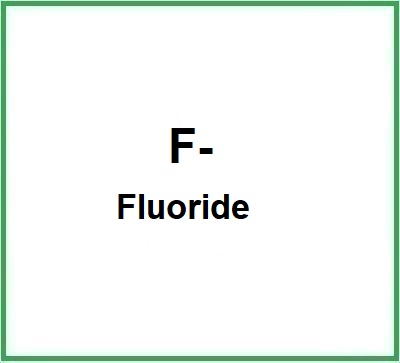Fluoride is the negative ion of fluorine which is a chemical element with molecular formula F and atomic number 9.
Fluoride plays an important function in the human body as a bone fortifier and is one of the essential elements for the maintenance of normal cellular processes in the body. It is commonly used to fight caries and, for this purpose, is included in the toothpaste formula.

However, over-accumulation of fluoride causes fluorosis, which has symptoms such as skeletal embrittlement and liver damage, including endocrine disorder, abnormal calcium buildup and tooth discoloration (1).
Many studies have shown that high concentrations of fluoride in drinking water increase serum renal and liver function enzyme levels and may cause histological changes in liver and kidney (2).

The accumulation of excess fluoride in the environment presents serious risks to the health of plants, animals and humans. This endangers human health, affects the growth and development of the organism and negatively affects the food chain, thus compromising the ecological balance. In recent years, numerous studies have focused on the molecular mechanisms associated with fluoride toxicity. These studies have shown that fluoride can induce oxidative stress, regulate intracellular homeostasis redox and lead to mitochondrial damage, endoplasmic lattice stress and alter gene expression. This paper reviews this research on the potential adverse effects of fluoride overdose on various organisms and aims to improve our understanding of its toxicity (3).

References______________________________________________________________
(1) Neurobehavioural effects of developmental toxicity.
Grandjean P, Landrigan PJ
Lancet Neurol. 2014 Mar; 13(3):330-8.
(2) Zhan X, Wang M, Xu Z, Li J. Toxic effects of fluoride on kidney function and histological structure in young pigs. Fluoride. 2006;39(1):22–26
(3) Toxic effects of fluoride on organisms.
Zuo H, Chen L, Kong M, Qiu L, Lü P, Wu P, Yang Y, Chen K.
Life Sci. 2018 Apr 1;198:18-24. doi: 10.1016/j.lfs.2018.02.001.
![]() Fluoruri nelle acque minerali ?
Fluoruri nelle acque minerali ? 



